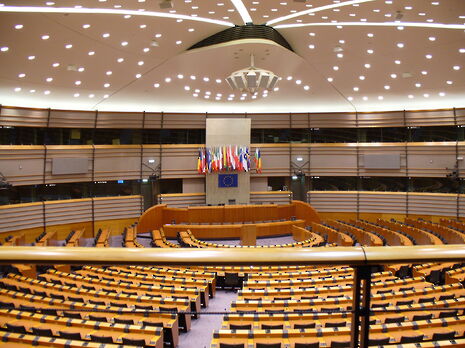The shambolic negotiation process in Brussels is putting us all at risk
In the latest instalment of his column, Tom Nixon looks at what is holding up Brexit negotiations and reminds us of the urgency of proceedings

Unsurprisingly, Brexit is a topic that has had ceaseless news coverage since the referendum. The constant political machinations within the Conservative government, the repeated warnings from business leaders and the challenges raised by opposition parties make up just a few of the more repeated stories we are bombarded with day by day. These developments are important and it is unsurprising that domestic politics has taken the limelight.
However, the Brexit negotiations across the channel are perhaps under less scrutiny than deserved and it is useful at this point to take stock of where we are. Whilst political power struggles impede consensus at home, David Davis’ cack-handed attempts at diplomacy in Brussels are endangering not just our chances for a favourable deal, but our chances of any deal at all.
“We need to accept this one off cost in order to safeguard the future of the country”
We have already had six rounds of negotiations and the first phase, initially scheduled to end in December, has seen Britain and the EU at loggerheads. It seems unlikely that the original timetable can be followed through as fundamental issues have split the negotiating teams. Both sides on the negotiations will blame one another for the deadlock. However, it is intransigency on both sides that is prolonging the discussions. This impasse is particularly worrying considering that there is a firm deadline: Britain will officially leave the EU on midnight 29th March 2019.
Firstly, on the subject of citizens’ rights, a vital issue for both sides, we are far from a solution. This is a burning problem as almost 3 million EU citizens live in the UK and 1.2 million UK citizens live in the EU. The European Parliament has recently rejected the UK’s last proposal on the issue. A key bone of contention is the role the European Court of Justice in monitoring the rights of EU citizens.
David Davis has argued in the past that this represents a breach of the UK’s sovereignty and has refused it any role, whilst the EU sees it as the only judicial body impartial enough to guarantee the rights of its citizens. Without agreement on this issue the position of many UK and EU citizens will be put in jeopardy. The rights of millions of people to remain in a place where they work and where they have friends and family may be at risk.
Secondly, and perhaps the most urgent issue, is the matter of the Northern Irish border. The Good Friday agreement, which secured peace after decades of sectarian violence, is under threat from Brexit. This is because a key part of the agreement was based around free movement between Ireland and Northern Ireland.
This was fine whilst both countries abided by the rules of the single market but, if the UK is no longer part of the EU, a frictionless border is no longer a given. There is good will from both sides to reach a deal over this issue, but there is no agreement yet and anything that could spark new conflict in Northern Ireland is something that we should be deeply worried about.
Third is the size of the UK’s ‘divorce bill’. It is perhaps unsurprising that the main crunch point in the negotiations so far has been over cash. Repeatedly, round after round, Barnier has stated that clarifications on financial commitments are needed before any trade deal can be decided. This issue has dogged negotiations since the beginning of the process, with the UK initially refusing to even recognise that they had any legal obligations at all.
Whilst there is no agreement, there is no possibility of trade talks and time is ticking. Barnier has given the UK a two week deadline to clarify their position on the financial settlement. The longer the trade talks are postponed, the less likely we are to have a deal by the time we officially leave the EU in 2019. A no-deal Brexit is now a real threat, let alone the chance of the transition period desperately requested by business leaders.
The priority for David Davis should be to move towards trade talks as soon as possible. The stagnation of current talks over the size of the divorce bill can be resolved by a simple, pragmatic attitude: we need to accept this one off cost in order to safeguard the future of the country
 News / Colleges charge different rents for the same Castle Street accommodation2 March 2026
News / Colleges charge different rents for the same Castle Street accommodation2 March 2026 News / King’s hosts open iftar for Ramadan3 March 2026
News / King’s hosts open iftar for Ramadan3 March 2026 Theatre / Lunatics and leisure centres 4 March 2026
Theatre / Lunatics and leisure centres 4 March 2026 News / Angela Merkel among Cambridge honorary degree nominees27 February 2026
News / Angela Merkel among Cambridge honorary degree nominees27 February 2026 News / News in Brief: waterworks, wine woes, and workplace wins 1 March 2026
News / News in Brief: waterworks, wine woes, and workplace wins 1 March 2026








